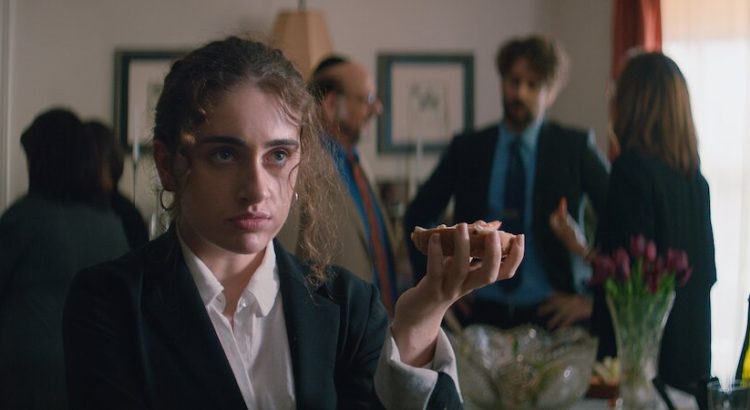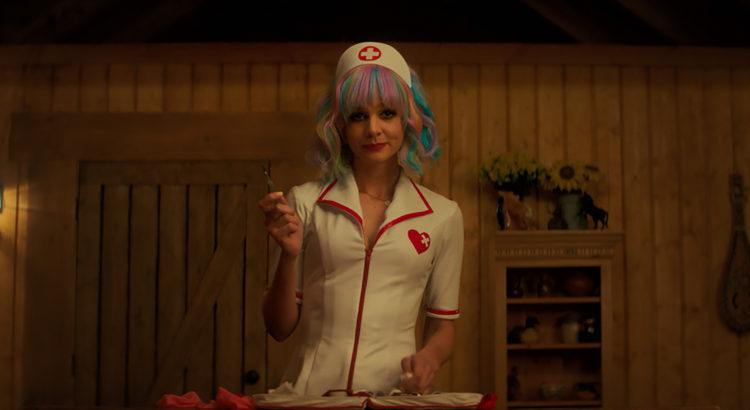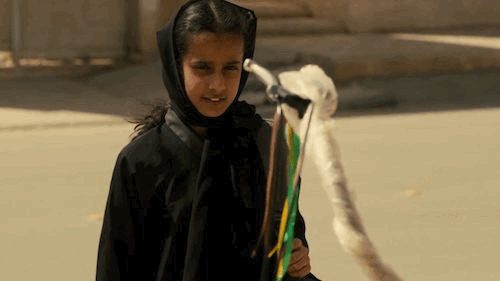A college student, her sugar daddy, her sugar daddy’s wife, their screaming baby, and her ex-girlfriend walk into a shiva. This is Shiva Baby, Emma Seligman’s directorial debut. The film’s anxiety-inducing nature has led some critics to liken it to Uncut Gems, but the two films are completely different. Uncut Gems is sensory overload from an extreme scenario with players that are shady and purposefully unlikable, whereas Shiva Baby’s stress stems from how imperfect and therefore relatable its characters are. There is something very familiar about parents trying to be helpful but only succeeding at embarrassing you, extremely judgmental family friends, being forced to talk to the last person you want to talk to, and having to stay friendly and polite the entire time. It’s not difficult to understand the kind of stress Seligman’s protagonist, Danielle, is under.
Shiva Baby’s runtime clocks in at a mere 1 hour and 17 minutes, and this could be a disadvantage for Seligman. However, instead of her characters being underdeveloped and the plot rushed, Seligman simply elects not to waste any time. This is where the relatable aspect of the film comes into play again; everything that occurs is believable and realistic, so Seligman does not have to dedicate very much of her film to extensive exposition. The setting of the film also contributes to this aspect; all scenes but the first take place in one location, therefore containing the film and grounding it in its specific reality. All possible events are limited to interactions between the characters attending the shiva. Here, Seligman avoids the trap of her film becoming repetitive. Rather than beating a running joke to death, she inserts backhanded comments from shiva attendees about Danielle’s appearance right after an interaction has gone poorly, turning what’s already pretty bad into something a little worse. And by simply having Danielle plan to leave the shiva with her parents, Seligman has trapped Danielle at the event where she will only become more and more overwhelmed.
Finally, there’s the character of Danielle herself. She’s just a regular college student who’s about to graduate, and she’s quite terrified for the future. Her parents and family friends don’t particularly understand how she designed her own major and what she’s planning on doing with it, and it doesn’t help that her ex is going to law school and that her sugar daddy’s wife owns three businesses. The one thing Danielle really has any control over is her sugaring, and when she realizes she’s competing with the wife, it’s only natural she is jealous and snarky towards her. And yet, despite Danielle’s messiness, you can sympathize with her and also just hope she can leave the shiva so you can breathe again.
Overall, Shiva Baby is well-written, well-acted, and funny. And due to its claustrophobic and experiential fashion, you can’t wait for it to be over, but only because you’ve become so invested in it.
Shiva Baby is available to rent on Amazon Prime Video.









